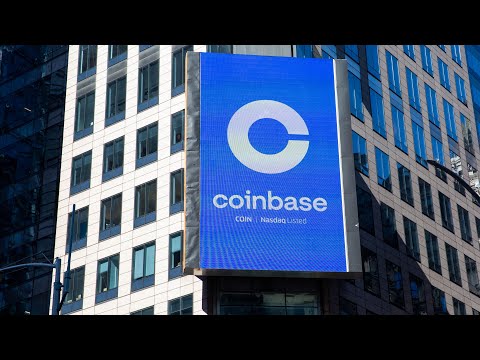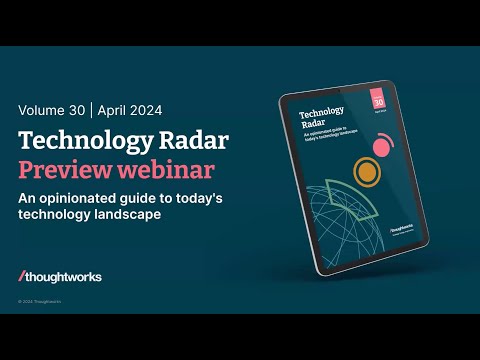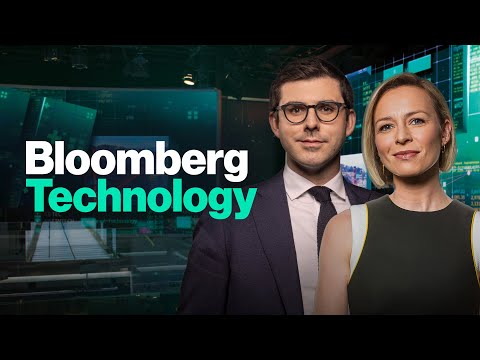Coinbase Co-founder Fred Ehrsam

Not long after Bitcoin was born. Fred IRSA became an analyst at Goldman Sachs. The new mysterious digital currency had been invented by Satoshi Nakamoto a pseudonym for a person or group that wanted to circumvent the traditional banking system. On a good day the price was beer sense and almost no one knew what it was. But Ursa saw the potential. He bought it as much as he could and found himself obsessively checking early cryptocurrency exchange Mt. Gox and scouring Reddit threads where he met another Bitcoin enthusiast Brian Armstrong as Mt. Gox was hacked and going bankrupt. Armstrong and Ursa were building Coinbase which would become the most mainstream place to buy sell and store cryptocurrency in the United States. In
the span of a little more than a decade the crypto market went from zero to more than two trillion dollars with some euphoric highs and gut wrenching lows in between. Joining me on this edition of Bloomberg Studio 1.0 to talk about that wild ride and where it's going next co-founder of Coinbase and the crypto investment firm Paradigm. Fred Bergsten. Take me to the very beginning of your crypto journey when you were an analyst at Goldman Sachs. What was it that drove you to
this emerging technology. GS I think I was lucky because I had three core ingredients to understand crypto. One was I was a computer scientist an engineer by training. The second is at Goldman. I was trading at specifically the euro and watching the European debt crisis unfold every day watching the IMF give the next tranche of bailouts to Greece seeing how the euro would trade on that thinking hey maybe this isn't working so well. And the last is I was a hardcore gamer in high school. I was on the best team in the world at a video game lived in these virtual worlds that had virtual currency all the time. So that idea was
pretty natural to me. And this was right around the time that Bitcoin came out on the Internet. Around 2010 2011 and nights and weekends that I would just spend my time getting further and further into it. Tell us about the moment when you realized that this crypto thing was really something when the world and your fans probably had no idea what was going on or thought you were crazy. Well when we launched Coinbase in 2012
out of a two bedroom apartment in San Francisco it did seem like a crazy idea at the time. You walk down the street nobody would know what Bitcoin was. Those people who knew about it probably thought it was nuts. The literal advertise mint even on the bitcoin sub right at the time was a bad Microsoft paint painting of a wizard that said magical area of money. So very very non obvious at the time. The thing though that really stood out is the community was extremely strong even though it was small. And if you look to the early coin based numbers things grew really well especially when we added the simple feature just to buy and sell bitcoin. With any U.S. bank account with one click. So while it seemed crazy to most outsiders at the time it was
clearly growing on the inside. And I think that's even true in crypto today. On some level you have these kind of radical believers on the inside and then many people on the outside who might still be touching the elephant still trying to figure out exactly what's going on here. How did you meet Brian Armstrong co-founder of Coinbase and why did you two set out to do that. Well like any great crypto venture it started decentralized in some sense. We met on Reddit on the Bitcoin sub Reddit. He posted a prototype of an early version of Coinbase and I emailed them. We met up at the now infamous creamery in San Francisco which is sort of the like back in 2012 was the place where everybody would would do meetings and started working together 15 hours a day for four weeks.
Weekends included. It turned out people with a really cared about building something in crypto that allowed the whole thing to go mainstream. And at the time were you bought in like had you invested your own money into this magical Internet money not knowing what would happen. A Yeah I was fully bought in both financially and career wise. I quit my job at Goldman and moved out to the West Coast. Not even having a place to live. Obviously I started working on Coinbase and then financially I
didn't have very much money but the little money I did have I invested in bitcoin. And it's funny. The most expensive thing I own today is still a car I bought in 2012. I bought it for nineteen thousand dollars. At the time bitcoin was about ten dollars. So an opportunity cost terms. It's about a 50 million dollar car. I still love the
car. But just to give us a sense for how expensive real world goods are in bitcoin terms over time. You are at coinbase co-founder until 2017. You are president I believe at the time. And then you left. Why did you leave. A couple reasons. One I felt like the company was just a very good spot. The second is. For much of cryptos history. So from twenty 10 when Bitcoin sort of came out 2009 up until 2017 really the only idea that seemed possible in crypto was this idea that it was a new global digital money. And the thing that really changed in 2017 is all of a sudden the door is opened to much broader applications. A theorem came on
the scene and showed that block chain based applications were possible to build. And people were both building very early versions of them. Today we know those things better as you fi or these decentralized financial applications that live on the block chain. And even more broadly I think over time we'll see a mainstream consumer apps and perhaps NF TS or weird bleeding edge of exactly that. So I found that that whole new frontier to be extremely
exciting. Coinbase is direct listing. It's now a public company was a huge moment for mainstream institutional adoption but it still seems like so much of the world doesn't get crypto. And how big it can be. What do you think they're missing. The short answer is a lot. I think look crypto is its own rabbit hole. And just like any new powerful technology it's extremely powerful because it reimagine these very important systems that run the world today from the ground up. Most people primarily think about crypto again as a new digital
money. That's really works especially with Bitcoin as a store of value where we've seen bitcoin go from zero to a trillion dollars in market capitalization over the last 10 years. But crypto goes much deeper than that. We think about crypto a paradigm which is the investment firm ISE started along with not
one in three stages today. And of course this model will evolve over time. The first is a new digital money. The second is if the new financial system and the third is just a broad Internet application platform. So in our minds crypto isn't just kind of this new digital money or new digital gold. It's a whole new financial system that we're seeing being built from the ground up by talented entrepreneurs all around the world. And while it's extremely early on the Third Frontier a new application platform we think that over. Over the course of
decades a lot of Internet applications that we're all using will also be crypto based. I've talked to investors who say Coinbase could be the next AOL. It's the first exchange that's really gone mainstream but it's too early and others well or something else will surpass it. What do you think. I think it's a fair question. I think history is yet to be written. My view is that it's a very strong place to be to have the largest mainstream brand trust not only with users but also with regulators. And that being that bridge into the crypto world is a great place to start. Now as you mentioned you now run a crypto focused investment firm
called Paradigm. How is the crypto style of venture capital different from traditional venture capital. Yeah. Well I think in a few ways just to talk about why we started Paradigm in the first place. Myself and Matt Warren who was previously a partner at Sequoia focused and running their crypto investing efforts.
We realized a couple of things. One crypto is a whole new field that needs a 100 percent focus. The core question that Matt and I asked ourselves and starting the firm is is there anybody out there who if we were crypto entrepreneurs building a business and Matt was a former Y Combinator startup founder I obviously started a large crypto company and Coinbase who would we want to have as our first backers. And we couldn't really come up with a good answer to that question. The last is I think the expertise required aired both on a team and operationally in crypto is very different. So we're really trying to build a firm from an engineering and entrepreneurial point of view to best support these crypto native companies and protocols. The crypto Vichy landscape is getting now more competitive. So where are you placing your bets. How do you stay ahead of the curve. The thing we're really excited about is a
number of fronts. One is the picks and shovels businesses. So now that crypto has grown a lot. There are all sorts of basic infrastructure businesses that are being built out to support that ecosystem. Those of course include exchanges also custodians tax providers KYC AML providers lenders cryptos back is a service for any business that would like to integrate crypto all sorts of these picks and shovels businesses. A second big frontier as we talked about before is defy all of these crypto native financial building blocks that are being built out. And today support around seventy five billion dollars in
news or assets up from effectively zero three years ago. And this is sort of the bleeding edge of what we see as a whole series of crypto native applications. The U.S. government has yet to really take a stand on crypto. But President Biden's FCC has made it clear that some sort of stand is coming. What kind of regulation do you expect. I do think that crypto is an nuanced issue and that it's possible the US gets crypto. Ron.
There were something like 4000 crypto currencies at the start of the year I mean is that too many. Do you expect more. It's just like the Internet. People are going to try all sorts of things that will be millions and millions of of crypto currencies and crypto assets just like there are millions and millions of websites. Most of them won't work.
Especially early in the technology. There's a lot of dedicated communities out there and a lot of tribalism. Is that a good thing. It's an interesting question. I think every new powerful techno buggy tends to feel very polarizing at the beginning. So I think some level of tribalism is inevitable at paradigm. We think that we're super early in this technology. So getting too caught up in any singular view or belief or paradigm no pun intended is probably unwise. What do you think about Doge. Is it a hustle. Or do you give it more credit than
that. I think we'll perhaps framing it from Elian's point of view and it's always dangerous to guess what's going on in the mind of you on of course if cryptos taught us anything. And it's never to dismiss a good meme that couldn't later manifest into more concrete progress. I tend to think there's less of that on the ground today more holistically. I think whether it's DOJ or more the NAFTA
phenomenon I do like that there are there are a lot of things recently that I think have just brought crypto to a much more mainstream awareness and audience. One joke we often tell is NAFTA made it really obvious that most crypto insiders sort of were nerds that tended to care a lot about monetary theory or the intricacies of the financial system. And what NAFTA is really showed us is that a lot more people it turns out care about culture music art. Basically everybody does. And that that's been a huge boon just for public awareness of what the technology can do. OK but the NAFTA market kind of imploded over the last few weeks. I mean sales in almost every category are drying up like what's happening there. Yeah volume is definitely down. And again I think that's natural. Just like the cycles in crypto are I go so far as to say that 90 percent of NAFTA is produced. They probably will have little to no value in three to
five years. You could say the same thing about early internet companies in the late 90s too though. It's sort of inevitable in a new technology that people are going to try a bunch of stuff. Most of it won't work at the beginning but the technology itself is really important and really valuable over the long run. And there will be a few things that end up being fundamental building blocks that really do matter. I want to talk about regulation because the U.S. government has yet to really take a stand on crypto. But President Biden's FCC has made it clear that some sort of stand is coming. What kind of regulation do you expect. So I think the US is that a very important crossroads with crypto today. The US
is blessed with the best currency and the world's reserve currency today. It also tends to be the de facto financial regulator for a whole bunch of the world. We all also have a history of being the strongest technology country in the world. If you look at the most valuable companies in the world today most of them are American Internet technology companies the Googles the Microsoft the Facebook. I do think
that crypto is an nuanced issue and that it's possible the US gets crypto wrong. I think today you have a lot of regulators whose job it is to mitigate risk and keep us all safe. And that's that's very appropriate. At the same time I think crypto is the next Internet sized opportunity for the United States. I think it has the potential to create as many if not more jobs in the Internet. Similar with
economic growth. I think it has the potential to square the circle on the privacy Internet issues that we've been talking about with big tech companies for the last 10 years. Namely we could use these technologies to continue to own our own data while still getting all the benefits of the Internet platforms we know and love. Today China is taking a stand on
crypto. For better or for worse. And that's also where most of the mining is happening. Do you have concerns that China is going to beat the US in crypto and that that's kind of a big deal. Yes. Yeah. And it's on multiple fronts to your point. One is there are government programs to explicitly build using crypto. This is true both with their DCP initiative which is basically making a digital renminbi. It's also true of local governments
who are trying to use block chain technology. And then to your point is strictly most crypto mining has been in China recently. There was actually a government crackdown in China on mining oftentimes because energy was being siphoned from the Chinese grid in ways that may or may not have been kosher. So I think there's actually a huge moment of opportunity today for miners in the United States or globally to to step in and on the crypto side to make it more decentralized. And then if you want to view it from a nation state point of view to make sure that no single country is in control.
The big promise of crypto is that it is the next iteration of the Internet. How long until we get there to that future. We're headed into a world where both the users and creators don't need centralized platforms or institutions anymore. There are folks out there who think crypto is a gimmick or a Ponzi scheme or an unsafe hedge against inflation. What do you think are the biggest myths about Chris Crypto that you want to bust. Oh geez. So many good ones. Or perhaps number one that crypto is all about speculation. I think all investment can be framed on some spectrum from it from speculation to extremely long term holdings. And I think as
PE people get more comfortable with the idea of crypto and why it is the superior money and store of value across all these different dimensions of money whether it's scarce to be portability the visibility that people are viewing it as a more long term holding in addition to the fact that there is real utility for crypto being built today all these financial services and new Internet applications. A second big one of course is energy. This is one of the hot topics no pun intended around crypto today. My net of view of the issue is that it takes far more energy and resources to protect and use physical assets than it does digital ones. So does that mean you think the energy concerns raised by Bill Gates and even Elon Musk are a red herring. I think they should examine the issue more closely and I think the industry hasn't done the best job of making legible exactly what's going on here. So my personal view is it's actually going to be a lot more energy efficient to use these digital systems of value transfer over time. But it's
understandable that there's a lot of confusion early especially given the nature of crypto which is that it's decentralized. So nobody has all the information. In some sense as you said you know crypto is the next Internet sized opportunity for the United States and. The big promise of crypto is that it is the next iteration of
the Internet that could free users from power and control of the gatekeepers. Whether it's the big banks whether it's Google or Facebook how long until we get there to that future that you see. Well I think in very small ways we're already there today in the sense that you can own your own global permission this money and you can be your own bank and crypto by simply downloading free desktop software that anybody in the world can run. I think it will take decades and decades for all of the applications to be rolled out around that base. So a full blown financial system I think were probably one tenth of one percent into what looks like in a crypto native form. Mainstream
applications I think were effectively at zero. And that's what we're so excited about. A paradigm is watching that whole space get built out and unfurl. So what does that mean for the Googles and the Facebook. Do they disappear someday. I think this is kind of like e-commerce where you know the world doesn't change overnight but you can see the seeds of exponential growth occurring already. So I do. I do think we will live in a future where for us to coordinate we won't need decentralized platforms today. That's already true of financial services in that in crypto you can be
your own bank. You don't need a central institution to hold your money anymore. I think that is true in the web application sense where already today there are creators who are pushing their work out over crypto rails from their own crypto wallet where the social graph exists. Direct play on shame. You don't need Facebook or Twitter or Instagram to have a follower graph. It just all happens right on the block chain. I think that's where we're headed. We're headed into a world where both the users and creators don't need centralized platforms or institutions anymore. Take me out 10 20 or 50 years. How has Crypto changed the world. What's different. I think one thing people don't yet fully grasp about crypto is how in a world that is increasingly going digital. Your crypto wallet is the entire representation of the digital you. So that
means it's your bank account. It's your online identity. It's your universal logon to every Internet application. It's your digital resumé sort of your digital LinkedIn. And all these things are in one place. You can use your real identity. You can use a pseudonym somewhere in between. And I think perhaps said quite simply the future I think will run on crypto rails. And I think it will be sort of the single source of truth and coordination that all systems in the world
use today. Well we'll have to check back in with you in 15 years but hopefully sooner rather than co-founder of Coinbase and Paradigm. Thank you so much for joining us.
2021-06-19 17:08


